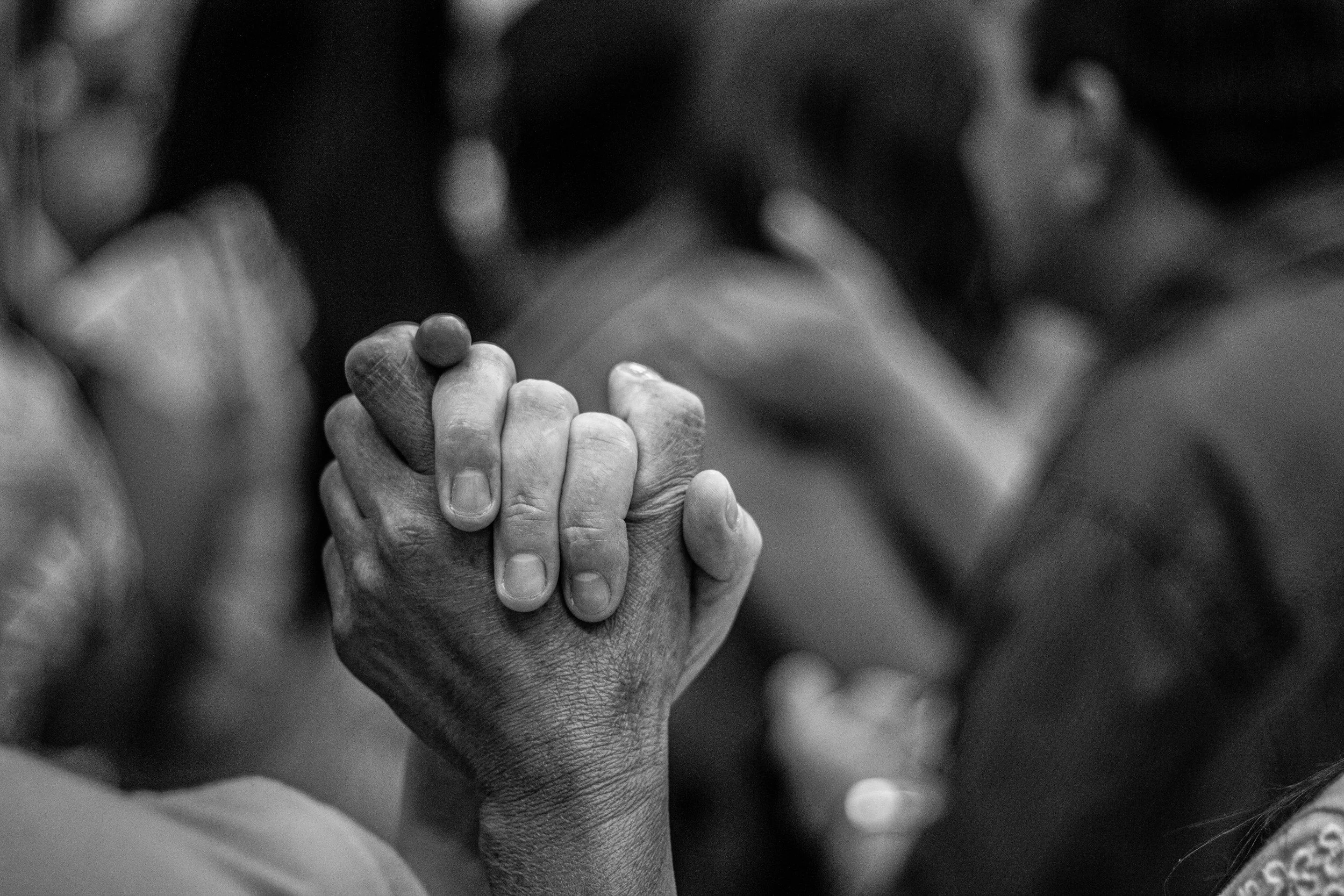
Thoughts and musings
Mastering Discernment in Prayer Ministry: How to Listen Well to God and Others
You want to pray effectively for others, but you're uncertain how to move beyond surface-level requests to address the real issues at play. Without the skill of discernment in prayer ministry, you risk missing what the Holy Spirit is revealing or praying in ways that don't align with God's work in that moment. The good news is that discernment can be learned and developed through practice, creating confidence to pray responsibly for those seeking help. What is discernment in prayer ministry? Discernment combines attentive listening to the person receiving prayer and the prompts of the Holy Spirit to understand how to align our prayers with God’s purposes.
How the Interview Unlocks Confident Prayer Ministry
Many believers feel uncertain when someone asks them to pray for a specific need. They want to help, but wonder if they're qualified, worry about saying the wrong thing, or feel overwhelmed by the complexity of the person's situation. This uncertainty keeps many Christians from stepping into the prayer ministry role God has for them.
The Five-Step Prayer Model: Understanding Confident Healing Ministry
For those called to pray for others, uncertainty can be paralyzing. You want to minister effectively to people who come for prayer, but without clear direction, you may feel inadequate or afraid of doing more harm than good.
Exchanging Brokenness for Wholeness Through the Holy Spirit
When shame, fear, and anger dominate our inner landscape, we find ourselves trapped in a fog that obscures the Holy Spirit's work in our lives. There is a prayer offered below that is called the Prayer of Exchange. It offers a transformative pathway from darkness into the freedom and fullness that God intends for every believer.
From Doubt to Sacred Partnership: How God Uses Your Brokenness in Prayer Ministry
Woundedness and doubt are not disqualifications for prayer ministry—they are often the pathway through which God teaches us to partner with Him in healing. The journey from self-doubt to Spirit-empowered ministry requires understanding that the point of reference in prayer is not ourselves, but the Spirit of God working through us.
When Hidden Wounds Block Your Prayers: Understanding Guilt, Shame, and Fear
Do you sense invisible barriers between you and God when you pray? Many believers struggle with emotional wounds that limit their prayer breakthrough and intimacy with the Holy Spirit. The good news: these barriers—guilt, shame, and fear—don’t have to be obstacles. They're invitations to deeper healing.
Breaking Free: How Inner Healing Prepares You for Healthy Prayer Ministry
Have you ever felt weighed down by something from your past—a wound, a doubt, or a persistent struggle—that seems to hold you back from fully engaging in prayer ministry? You're not alone. Research shows that many people experience spiritual barriers that hinder their effectiveness in prayer, yet these obstacles often go unaddressed for years, even decades.
Why I Want to Share a Path to Healthy Prayer Ministry
You’ve seen powerful ministry. You’ve witnessed prophetic words come true, watched people healed, and seen God move in extraordinary ways. But then the unthinkable happens: a trusted spiritual leader falls into moral failure. The cognitive dissonance is overwhelming—how can someone used so mightily by God be caught in blatant sin?
Accessing Word Gifts in Prayer Ministry: A Biblical Foundation
Acts 2 provide an insight into how the apostles and the early church expected the Holy Spirit to speak through every believer as one of the fulfillments of the new covenant. Implicit in Peter's explanation was the immediacy of direct communication with the Holy Spirit. This means that word gifts are not reserved for a select few but are accessible to all believers who seek to minister in the power of the Spirit.
Word Gifts in the Early Church: Lessons from Paul's Conversion Story
There is another situation expressed in Acts 9:1-19 that uses word gifts and it involves the story of Saul/Paul's conversion. He was blinded on the road, heard Christ's voice, and went into the city. After a few days, the Lord spoke to Ananias to go to Paul, to lay hands on him, and to heal his sight. The Lord used a vision to prompt Ananias to go to Paul.
Jesus and Words of Knowledge: Biblical Examples for Prayer Ministry
One characteristic of the ministry of Jesus was the supernatural insights and knowledges that were part of his ministry. These insights were a normal part of his life and appeared to be understood as a divine manifestation. People were sometimes astounded, surprised, or even confused by what they experienced in moments shared with Jesus but that did not diminish the impact created by his insights and knowledge.
How Peter Explained Pentecost: Prophetic Ministry for All Believers
Pentecost was a major Jewish holiday also called the Festival of Weeks in the Pentateuch. In New Testament times this Jewish holiday was referred to by its Greek name of Pentecost. The holiday occurred 50 days after Passover (Easter) and Pentecost literally means 50 days. In Jewish tradition, Pentecost was the traditional date on which God visited the Israelites with the covenant of the Law on Mount Sinai after their deliverance from Egypt.
Understanding the Word: Gifts of the Holy Spirit in Prayer Ministry
The gifts of the Holy Spirit play an important role in prayer ministry. These gifts allow us to minister with insight, wisdom, and supernatural knowledge that goes beyond our natural understanding. In general, there is a subset of spiritual gifts that are referred to as word or prophetic gifts. These gifts include prophecy, wisdom, knowledge, tongues, and interpretation of tongues.
Supernatural Ministry Without Weirdness: Creating Safe Atmospheres
“God made me do it” is never a hall pass for awkward antics or poor conduct in prayer ministry. The supernatural should attract seekers, not repel them. Leadership coach Carey Nieuwhof reminds us, “The unchurched are looking for authenticity, not theatrics.” Follow a three-step safety plan.
Power + Goodness: Balancing Supernatural Power with Compassion
Acts 10:38 sums up Jesus’ resume: doing good and healing all. Supernatural power without compassion intimidates; compassion without power disappoints. A healthy healing ministry marries both.
Authentic Prayer Life: Tone Reveals Theology
Every intercessor live-streams their theology through vocal inflection and word choice. Pray like God is distant, and listeners feel orphaned. Pray like a dearly loved child, and faith rises. Harvard’s 2022 Positive Psychology study found that daily gratitude boosts empathy by 17%, directly improving tone.
Honor Unlocks Healing: Sensitivity, Respect & Honor
Miracle headlines grab clicks, but the hidden heroes of sustained transformation are sensitivity, respect, and honor. Jesus shielded a demonized boy from gawkers and whispered destiny to a Samaritan outcast, proving that how you treat people shapes how they remember God. Modern neuroscience agrees: psychiatrist Dr. Curt Thompson notes that “shame shuts down the brain’s receptivity,” while honor reactivates it.
Cultural Intelligence: Pray Across Cultures Like Jesus
The Samaritan well wasn’t just a water stop; it was a masterclass in cultural intelligence. Jesus navigated racial tension and gender norms while still delivering living water without offense. Pew’s 2023 study notes that 48% of U.S. churchgoers now worship in multi-ethnic congregations, making cross-cultural fluency a must for effective healing prayer.
Prayer Etiquette 101: How Respect Creates Breakthrough
“Can I pray for you?” sounds simple, yet the how of that moment often determines the outcome. Seasoned prayer ministers understand that prayer etiquette - eye-level contact, permission to touch, tone that matches emotion - communicates worth before a single petition is voiced. Barna’s 2024 survey found that 62% of unchurched adults felt “more open to prayer” when ministers first asked permission rather than launching in uninvited to prayer. That outside data simply echoes what Jesus modeled with Jairus’s daughter: privacy, dignity, and then power.
Joining God’s Work, Co-Laboring with the Spirit
Prayer ministry is ultimately about joining in with what God is already doing. The Holy Spirit is always at work - in the world, in the church, and in the quiet corners of our lives. Our role is not to initiate, but to cooperate. We are invited to be co-laborers with the Spirit, aligning our hearts with God’s purposes and our actions with his leading.




















